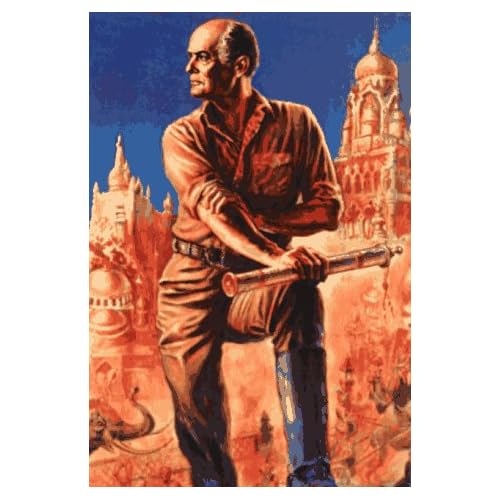Talbot Mundy – Adventurous Writer of Adventures
 Almost forgotten today, Talbot Mundy was one of the great adventure writers of the first half of the twentieth century. It was fellow bibliophile and curiosity seeker Stephen Bresnehan who put me onto Mundy, sending me a copy of ‘King – of the Khyber Rifles’, a thrashingly good tale of derring-do in the days of the British Raj. What struck me reading KotKR was the sense of place the story had, how convincing the description was of India, Afghanistan and its people. While some of the characters showed the casual racism of the time, this wasn’t universal, and Mundy’s portrayal of the Indians and Afghanis was positive, respectful and without condescension. It was evident, too, from the events of the novel, that Mundy was fascinated by the spiritual aspects of life in India and how these differed from Western practices.
Almost forgotten today, Talbot Mundy was one of the great adventure writers of the first half of the twentieth century. It was fellow bibliophile and curiosity seeker Stephen Bresnehan who put me onto Mundy, sending me a copy of ‘King – of the Khyber Rifles’, a thrashingly good tale of derring-do in the days of the British Raj. What struck me reading KotKR was the sense of place the story had, how convincing the description was of India, Afghanistan and its people. While some of the characters showed the casual racism of the time, this wasn’t universal, and Mundy’s portrayal of the Indians and Afghanis was positive, respectful and without condescension. It was evident, too, from the events of the novel, that Mundy was fascinated by the spiritual aspects of life in India and how these differed from Western practices.
Intrigued, I went Mundy chasing – and found an extraordinary life.
Talbot Mundy was born in 1879, at the height of the Victorian British Empire, and with a name entirely suited to this era – William Lancaster Gribbon. He attended that most proper of public schools – Rugby – but ran away at the age of sixteen. Two years later he had travelled through Africa, the Middle East, Tibet and China, before spending time in India. He worked with governments, railways and engineering concerns before returning to England in 1909 with a new wife and a new name – Talbot Mundy . The constraints of Edwardian England were only marginally more tolerable to Mundy than Victorian England, so the couple decamped to the US.
Soon, Talbot Mundy was drawing on his travel experiences and writing for the pulp magazines. After some preliminary efforts, he eased into writing historical adventure tales full of colour and dash. He soon gathered a reputation for presenting an alternative to writers such as Sax Rohmer (‘Fu Manchu’) where ‘orientals’ were uniformly inferior (at best) or downright evil. While Mundy’s protagonists were upright and square-jawed Britons or Americans, they were surrounded by foreigners who were intelligent, capable and with a culture that was indisputably different – and valued for such. His depiction of female characters, too, was notable, as they were often far more forthright and active than was the norm in adventure stories of the time. His Yasmini, from KotKR, for instance is planning to rule India. And not through some ill-defined ‘feminine wiles’ but through a combination of careful planning, ruthless politicking and targeted demagoguery.
Through the 1920s and 1930s, Mundy became a successful writer, graduating to novels and becoming increasingly interested in philosophical and spiritual matters, in some ways anticipating the interest in Eastern mysticism that flowered in the 1960s. He moved between highly fantastic stories of the occult and gritty historical tales, one series of which (‘Tros of Samothrace’) was an acknowledged influence on Robert E Howard’s ‘Conan the Barbarian’.
Talbot Mundy died in 1940. He has been cited as an important influence by writers such as Robert A Heinlein, Leigh Brackett and Fritz Leiber, but if he’s remembered today it’s often as ‘one of those jingoistic imperialist writers’, which is doing him a disservice. He deserves to be known as one of the writers of the period who actually visited the places he wrote about, and who actually had affection for and an understanding of, its people.
I loved Tros of Samothrace. And The Purple Pirate was great, too – it really felt as though he’d been there. He should be better known.
He writes as well as any from that era, Ian. As you say, deserves more recognition.
Read Tros series years ago …very impressive…I ve been trying to find his other books …public libries no longer have them …pity
I’ll try to keep him in mind when looking for another book to read. 🙂